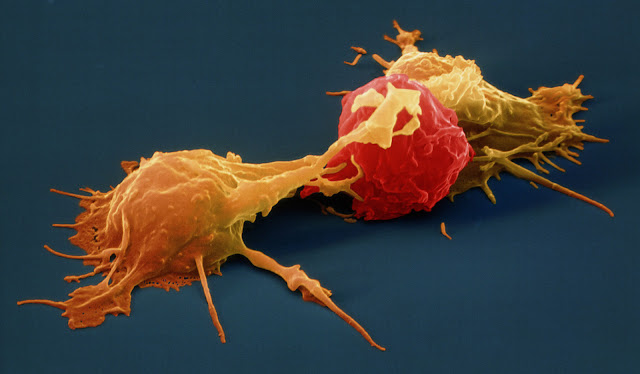Natural Killer Cells are a Form of Granular Lymphocytes of Varying Sizes that Play an Important Role in Innate Immunity in the Human Body
Natural Killer (NK) Cells are
lymphocytes that share a common progenitor with T and B cells and belong to the
same family. However, NK cells are categorised as group I Innate Lymphocytes
(ILCs), which are cells of the innate immune system, and they react fast to a
wide range of pathogenic stimuli. NK cells are well recognised for destroying
virally contaminated cells as well as for spotting and managing early cancer
indications. Specialized NK cells are present in the placenta and may be
crucial throughout pregnancy in addition to defending against illness.
Natural
killer cells, also referred to as NK cells or large granular
lymphocytes (LGL), are a subset of cytotoxic lymphocytes important for the
innate immune system that make up between 5-20% of all circulating lymphocytes
in humans. They are members of the rapidly growing family of known innate
lymphoid cells (ILC). In the vertebrate adaptive immune response, the function
of NK cells is comparable to that of cytotoxic T cells. NK cells respond
quickly to the development of tumours as well as intracellular pathogens
working three days after infection and on virus-infected cells.
Immune cells often recognise the
MHC molecules on the surfaces of infected cells, which leads to the production
of cytokines and the death of the infected cell through lysis or apoptosis.
However, NK cells are special because they can identify stressed cells and kill
them even in the absence of antibodies and MHC, triggering an immune response
much more quickly. Because they kill cells that lack MHC class 1
"self" signals without activation, they were given the term
"natural killers." This function is particularly crucial because
other immune cells, such as T lymphocyte cells, cannot identify and eliminate
dangerous cells lacking MHC I markers.




Comments
Post a Comment